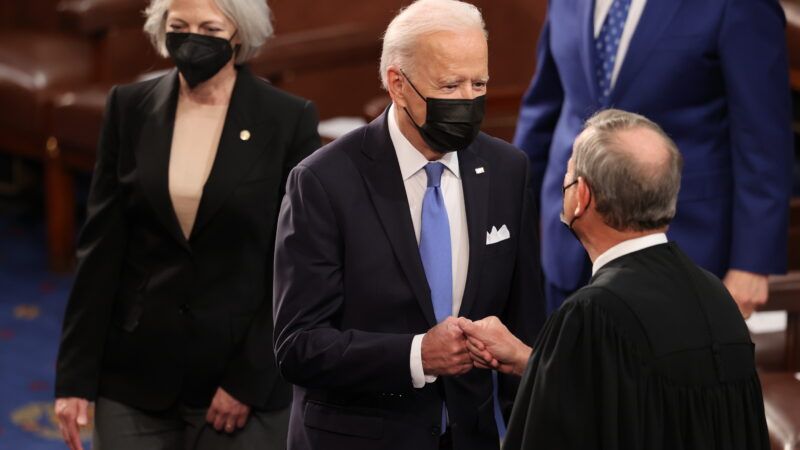Biden's Supreme Court Commission 'Takes No Position' on Court Packing
“There is profound disagreement over whether Court expansion at this moment in time would be wise.”

Earlier this year, President Joe Biden announced the creation of a Presidential Commission on the Supreme Court of the United States. Made up of legal scholars and activists, its purpose was to "provide an analysis of the principal arguments in the contemporary public debate for and against Supreme Court reform," according to a statement released by the White House.
The commission's final report was released last week. Its contents are likely to come as a disappointment to those progressive activists who were hoping that the commission would support their campaign urging Biden to pack the Supreme Court with new justices in order to create a liberal supermajority on the bench.
"Although there is widespread agreement among legal scholars that Congress has the constitutional authority to expand the Court's size," the report states, "there is profound disagreement over whether Court expansion at this moment in time would be wise. We do not seek to evaluate or judge the weight of any of these arguments, and the Commission takes no position on the wisdom of expansion."
To say there is profound disagreement about the wisdom of court packing is to put it mildly. No less than Justice Stephen Breyer, the Supreme Court's longest-serving Democratic appointee, has denounced the court packers for waging a misguided campaign that threatens both the independence of the judicial branch and even liberalism itself.
To be sure, not all liberals see things Breyer's way. Harvard law professor Laurence Tribe and retired federal judge Nancy Gertner, who were both members of the Biden SCOTUS commission, took to The Washington Post immediately after the report was released to trumpet their support for court packing. "Hand-wringing over the court's legitimacy misses a larger issue: the legitimacy of what our union is becoming," they write. "To us, that spells a compelling need to signal that all is not well with the court, and that even if expanding it to combat what it has become would temporarily shake its authority, that risk is worth taking."
"Judicial independence is too important to sacrifice for a majority's temporary political advantage," countered Princeton professor Keith Whittington, who also served on the Biden SCOTUS commission. "If a temporary partisan majority added three new justices to the Supreme Court today," Whittington wrote in The Wall Street Journal, "it had better expect that the opposition party will do the same the next time it holds power. The court could easily become a political plaything of political majorities rather than a functional independent branch of government."
Whittington's arguments might strike a chord with the president, since they echo statements made by Biden himself. Court packing is a "live ball" among many Democratic activists, Biden conceded during his 2020 presidential campaign. But he also added that "the last thing we need to do is turn the Supreme Court into just another political football, whoever's got the most votes gets whatever they want."
Time will tell if the Tribes and Gertners of the legal world are able to change Biden's mind about that.


Show Comments (83)